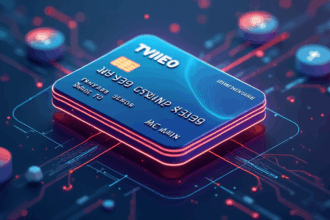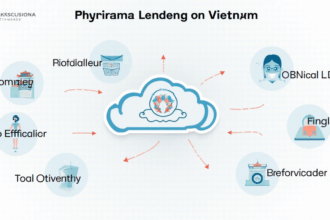Introduction: The Need for Transparency
In 2022, Vietnam’s agriculture sector contributed approximately $41 billion to the national GDP, but inefficiencies persist. Many farmers face challenges like limited access to markets and a lack of trust in the supply chain. Enter blockchain technology, poised to revolutionize this landscape. So, how can blockchain agriculture bring about change?
The Role of Blockchain in Vietnamese Agriculture
Blockchain technology offers decentralized solutions for numerous issues in the agricultural sector. By enabling transparent transactions and traceable processes, blockchain enhances the reliability of supply chains. For instance, farmers can securely document their crops’ journey from seed to sale, assuring buyers of authenticity.
Key Benefits of Agricultural Blockchain
- Enhanced Traceability: Consumers can track where their food comes from, which aligns with increasing health trends.
- Secure Transactions: Smart contracts facilitate automatic payments once delivery is confirmed, reducing delays.
- Increased Efficiency: By eliminating intermediaries, farmers receive fair prices directly from consumers.
Vietnam’s Market Potential for Agricultural Blockchain
According to Statista, the number of internet users in Vietnam increased by 12% in 2023, reaching over 70 million. This digital growth offers fertile ground for blockchain adoption, especially in agriculture.

Real-World Case Studies
One notable example is VinGroup’s initiative to implement blockchain tracking in its agricultural supply chain. They reported a 30% increase in customer satisfaction since introducing transparency measures.
Challenges Still to Overcome
While optimistic, several challenges remain. Agricultural blockchain initiatives must tackle:
- Regulatory Compliance: Ensuring adherence to Vietnam’s agricultural laws is crucial. Compliance with tiêu chuẩn an ninh blockchain will be essential.
- Education: Farmers need training to understand and implement blockchain technology effectively.
Conclusion: The Future of Blockchain in Vietnam’s Agriculture
In conclusion, the integration of blockchain into agriculture represents a transformative opportunity for Vietnam. As farmers, consumers, and suppliers come together on a decentralized platform, the entire system becomes more resilient and trustworthy. With continuous investment and education, Vietnam could lead the way in agricultural innovation.
For more information on how blockchain can impact your business, visit hibt.com. Not financial advice. Consult local regulators.
Author: Dr. Nguyen Minh, an agricultural technology expert, has authored over 15 publications and led audits for various blockchain projects.





